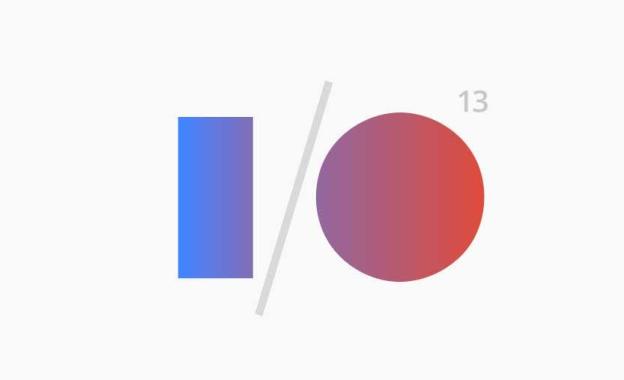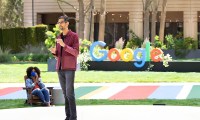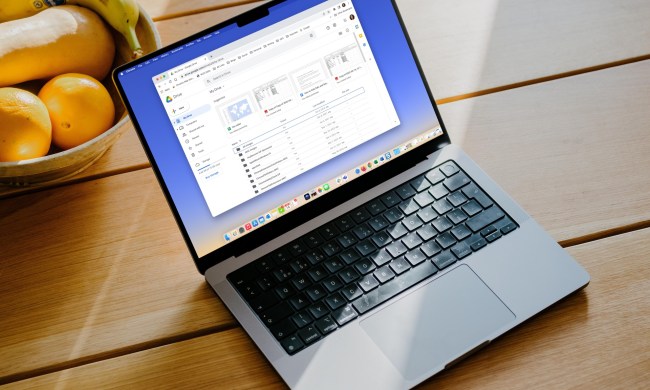
Google’s annual I/O developer conference starts tomorrow, and the tech rumor mill is at full tilt with speculation. Will the Nexus 7’s successor appear along with a new version of Android? What about a new version of Chrome OS to go along with the recently released Chromebook Pixel?
Talking about this year’s conference with Wired, Sundar Pichai, the head of both Chrome and Android, said things are going to be different. “It’s not a time when we have much in the way of launches of new products or a new operating system,” Pichai said. “Both on Android and Chrome, we’re going to focus this I/O on all of the kinds of things we’re doing for developers, so that they can write better things.” With the focus this year on developers instead of products, what can we expect to hear about Google’s own operating system? Here’s what we know about what may or may not be announced this week about Chrome OS and the devices running it.
Chrome and Android merging? Not yet
Let’s start off with something that’s NOT coming to Chrome: Android. Though Pichai has taken over both platforms in the last year, his recent Wired interview confirms that – at least right now – Android and Chrome are not merging in part because it creates a greater hassle for developers. However, he didn’t rule out the two platforms merging at some point in the future. “So in the short run, nothing changes,” Pichai said. “In the long run, computing itself will dictate the changes.”
Notification Center
Based on cues in Chromium (the open source browser code that Chrome is based on) it appears that Chrome OS may get a notification center of its very own. While notifications have been a hallmark of Android, Chrome hasn’t had a central place for alerts. While Pichai says Android and Chrome are not merging, this is one area where we could see Chrome adopting one of Android’s features. Plus, a notification center would support another application that’s rumored to appear on Chrome: Google Now.
Google Now
Google Now, a personal assistant introduced in Android 4.1 JellyBean, is almost surely arriving for Chrome OS. A Chromium expert recently found traces of code relating to Google Now in the code for Chrome OS and the Chrome browser for Windows. There’s no telling if Google Now, which draws information from your Gmail, calendar, and other Google products to give updates on events, weather, traffic, and travel arrangements, will be as useful in a desktop situation as it is on the go with Android (and now iOS), but we suspect there will be some enhancements, such as the aforementioned notification center. There’s also talk of Google Now coming to OS X.

Unified chat


Social gaming
Android Police discovered that Google is about to turn on social gaming service that includes multiplayer turns, in-game chat, leader boards, and achievements, much like Apple’s GameCenter. While it is all but confirmed that the service will debut on Android, there are plenty of apps and games available on Chrome, so it’s possible Google Games will debut on both platforms. We’ll see what happens, but Google could end up making a brave move into both the mobile and desktop gaming space this week.
Subscription news service
The Google Play store has plenty of reading material thanks to the Magazines section of the store, which includes a number of magazines that are no longer available in physical form (lookin’ at you Newsweek). Since numerous newspapers have had the same fate, it makes sense that Google would venture into newspaper territory. Plus, we’re willing to bet that Google wants in on the popularity of Flipboard, Pulse, and other news curation apps. Scanning the broadsheet of a newspaper on a touchscreen Chromebook would be a nice convergence of old school and new school technology.
Streaming music service
Building on Google Music and the recent introduction of YouTube subscriptions, Google may be introducing it’s own subscription streaming music service, a la Spotify. Google Music will already stream your personal collection on the go, so the only real barriers to getting a streaming service up and running would be negotiations with the music labels and creating a subscription model. In fact, one label, Warner Bros., signed on for it already back in March. Apple and Amazon are both rumored to get their own subscription services up and running this year, so it makes sense that Google would want to get an early jump on the competition by announcing its service at Google I/O. What better way show off the new service then on a new Chromebook or Android tab?
Enhanced cloud storage integration
Currently, Chrome OS favors Google Drive for cloud storage, but there’s been a Chromium feature request filed to allow other cloud storage services to be fully integrated into Chrome OS’s file manager. The idea is that a service such as Dropbox or SugarSync would appear as just another drive, much like a plugged in USB flash drive, along the left side in the file manager. While we know it was suggested, there’s no telling whether it’ll actually appear in the new version of Chrome OS until it’s unveiled at Google I/O. Though we think that even if it’s not announced this week, it’s a feature that will eventually be available in Chrome OS.

Chromebook
Though Pichai has said this year’s conference will focus more on developers than on products, it’s a pretty safe bet that we’ll see a new Chromebook this week. First of all, we know there are going to be Chromebooks powered by Intel’s new Haswell chip. However, Haswell won’t officially be announced until June 2, so if Google does announce a Haswell-powered Chromebook, it likely won’t be able to tell us what’s under the hood until next month. It is much more likely that we’ll see an ARM-based Tegra 4-powered Chromebook that has been referred to within Chromium code as “puppy.” The Puppy Chromebook is likely to be a mid-priced machine with much greater battery life than currently available in Chromebooks, and it may even feature a touchscreen. Alternatively, this machine could also be the quad-core Samsung Chromebook that’s been referenced in code as “daisy_spring,” and which is likely a refresh of the already popular Samsung Series 3 Chromebook.

We’ve also heard rumblings about an Android-based laptop powered by an Intel Atom Bay Trail processor coming to market, but, honestly, it doesn’t seem like a good idea. We’re willing to bet that Google doesn’t want to cannibalize Chromebook sales either, so it seems like a Google-anointed Android laptop isn’t likely to show up at the company’s own conference.
Stay tuned for updates from Google I/O and see if our predictions for Chrome OS are accurate.
[Images via OMG!Chrome!, TechRadar, and Android Police]



